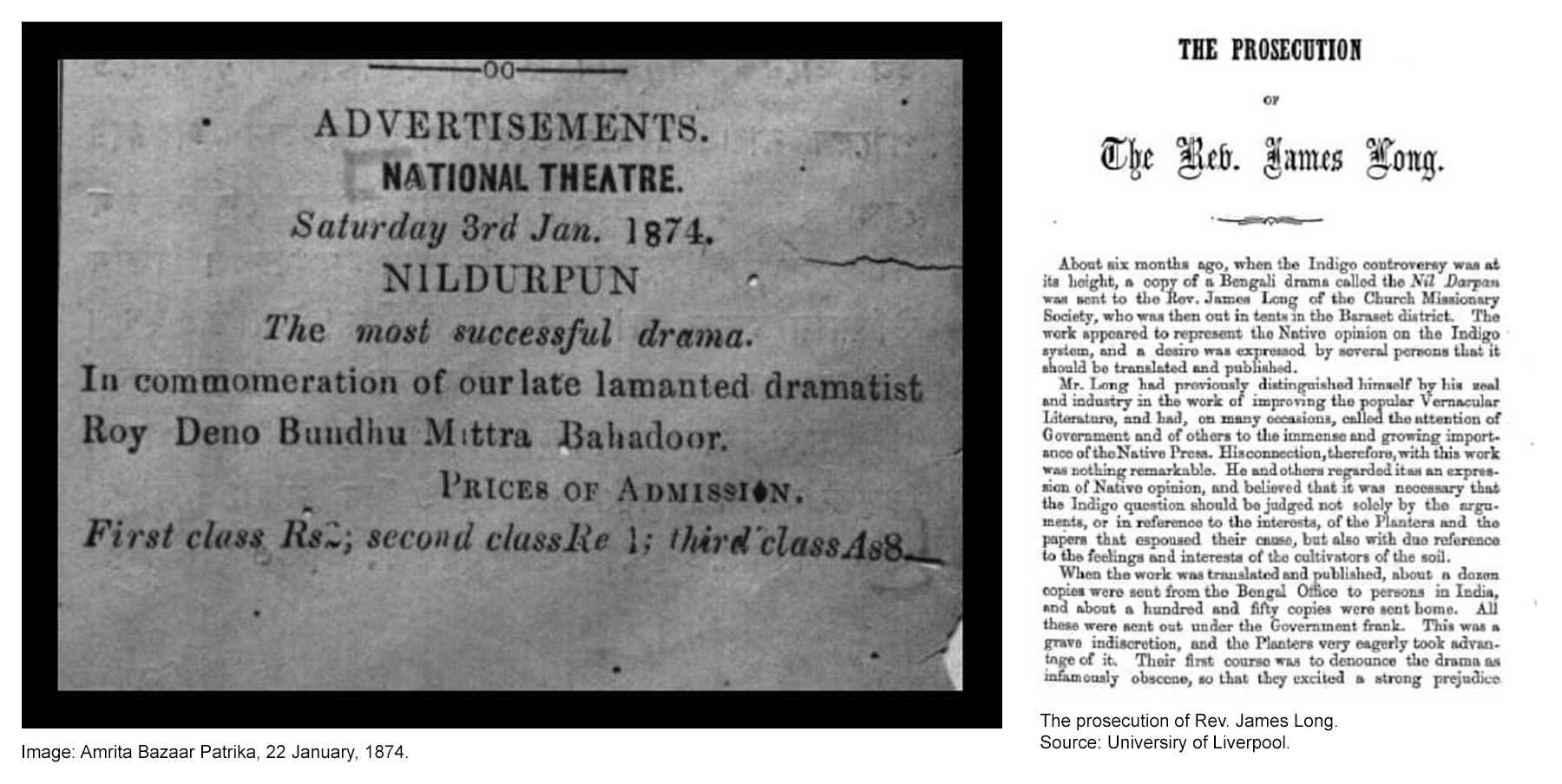Nil Darpan
In the month of July, the Alkazi Theatre Archives will be looking at plays, which have immediately responded to socio-political issues during both pre and post colonial times in Indian history.
The first play, written as a direct attack on the colonial government, is Nil Darpan, written in 1859 by Dinabandhu Mitra, and published under a pseudonym in 1860 in Dhaka. Revolts against indigo trade oppression in the Nadia district of Bengal, recorded from the late 1850s, took violent turns by 1859, around the same time when Nil Darpan was first published. The play was was translated from Bengali to English by Michael Madhusudan Dutt, titled, ‘The Indigo Planting Mirror’ and was published by Rev. James Long, who was later prosecuted by the British Government. Nil Darpan was the first commercial production of Bengal’s Nation Theatre group, staged in 1872 and directed by Girish Chandra Ghosh. The play had a huge impact on the Bengali middle class; the period also saw a considerable rise in nationalist sentiments, alongside the Swadeshi Movement. The staging of the play in 1875 in Lucknow led to one of the major turns in theatre history and censorship—the imposition of the Dramatic Performances Act of 1876. Here is an excerpt from the autobiography, Amar Kotha (translation: Rimli Bhattacharya) of stage-actress, Binodini of National Theatre:
“Almost all the sahebs of Lucknow city came that evening to see our play. At the point where Rogue Saheb attempts to assault Khetramoni, Torap beats him with a door he has broken down and then Nabimadhab takes Khetramoni away. The play was being performed quite brilliantly; in addition, Babu Motilal Surplayed Torap and Abinash Kar saheb played Rogue Saheb with unusual competence. The sahebs were extremely upset at this particular scene. A commotion arose and one of the sahebs actually climbed up the stage intending to beat up Torap. We were in tears…”

